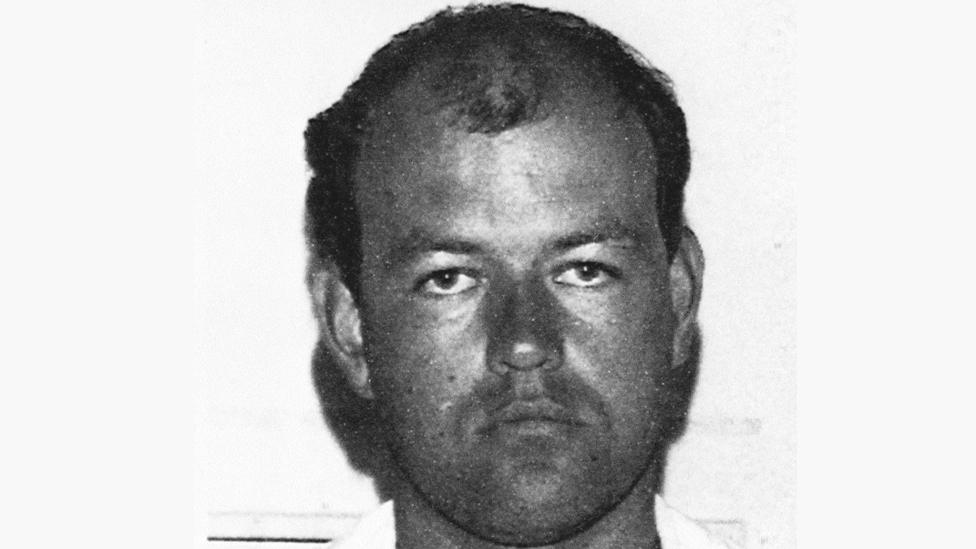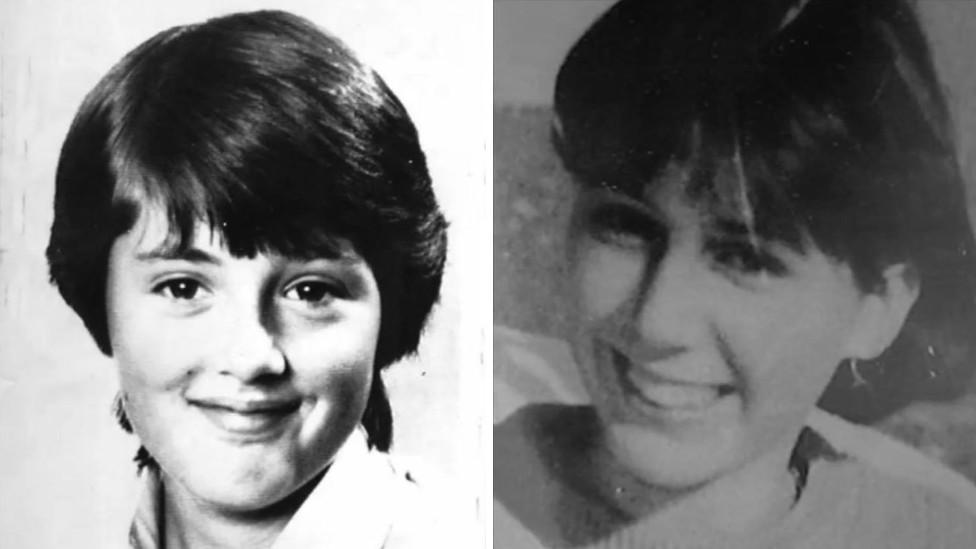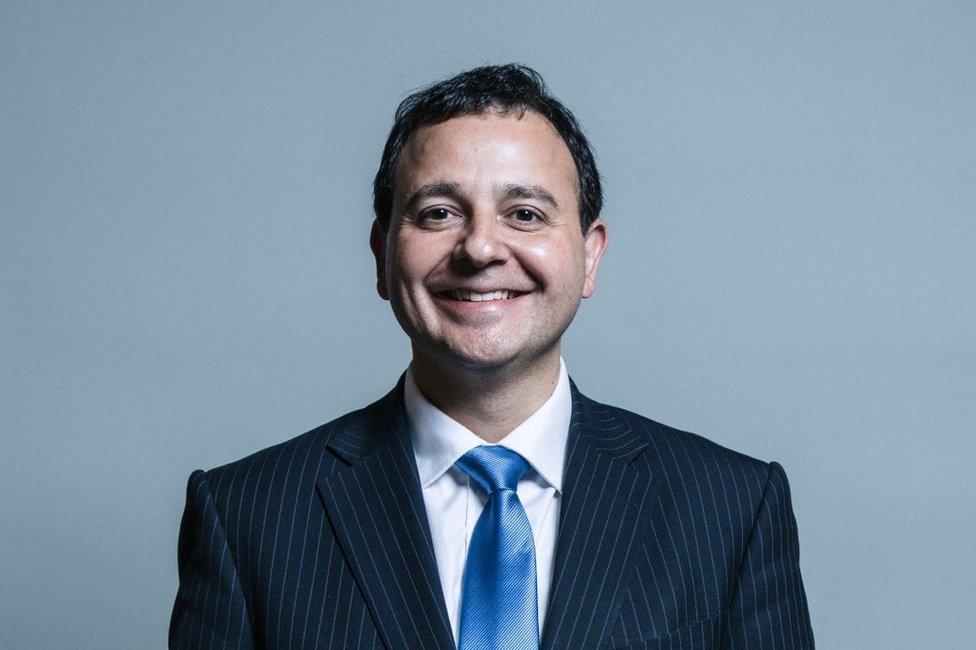Colin Pitchfork: Parole hearing for double child killer and rapist
- Published

Colin Pitchfork was released from prison after 33 years
Double child killer and rapist Colin Pitchfork, who was recalled to prison weeks after approaching women, is to be considered for release again this year.
Pitchfork, who killed two 15-year-old girls in Leicestershire, was released in 2021 after 33 years in jail.
The 62-year-old was then arrested after probation staff raised concerns about his behaviour.
He is understood to have approached young women on multiple occasions while out on walks from his bail hostel.
The Parole Board has now confirmed that a hearing is expected to take place this autumn.
The options available will be to refuse his release, grant release or recommend he moves from a closed prison to an open prison.

Dawn Ashworth and Lynda Mann were raped and murdered by Pitchfork
South Leicestershire MP Alberto Costa, who campaigned against Pitchfork's release, believes he still poses a risk.
"As my constituents will know, I have long held very serious concerns about the threat to public safety still posed by Pitchfork, and as ever, I will continue doing all I can to oppose his release," he said.
"Given Pitchfork's recall to prison after only a matter of weeks following his release on licence last November, it is quite clear that he still presents a very real risk to my constituents and the general public."
Mr Costa recently met with Martin Jones, chief executive of the Parole Board, in order to discuss the case.
"During our meeting it was confirmed that Pitchfork will face an oral hearing in front of the Parole Board, and that this will likely take place in autumn later this year," said Mr Costa.
"It was also confirmed to me that Pitchfork is very likely residing in a closed prison at present, and that he will likely remain there until his parole hearing takes place."
The Parole Board's release rate is one in four, meaning 75% of the prisoners reviewed are refused release.
Pitchfork could, in theory, be released straight from a closed prison but this is rare.

South Leicestershire MP Alberto Costa has campaigned against Pitchfork's release
Pitchfork was jailed in 1988 for raping and strangling Lynda Mann in 1983, and doing the same to Dawn Ashworth in 1986.
There was public outcry when the Parole Board deemed Pitchfork to be suitable for release, and former Justice Secretary Robert Buckland challenged the decision.
Since then the government has announced changes to the parole system, which include giving ministers powers to block the release of serious offenders.
'Undertaken thoroughly'
A spokesperson for the Parole Board said the panel would "carefully examine a huge range of evidence" when considering whether or not Pitchfork could be released.
"Members read and digest hundreds of pages of evidence and reports in the lead up to an oral hearing," the spokesperson said.
"Evidence from witnesses including probation officers, psychiatrists and psychologists, officials supervising the offender in prison as well as victim personal statements are then given at the hearing.
"The prisoner and witnesses are then questioned at length during the hearing, which often lasts a full day or more.
"Parole reviews are undertaken thoroughly and with extreme care. Protecting the public is our number one priority."

Follow BBC East Midlands on Facebook, external, on Twitter, external, or on Instagram, external. Send your story ideas to eastmidsnews@bbc.co.uk, external.
Related topics
- Published31 March 2022

- Published22 November 2021

- Published1 September 2021
